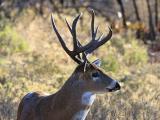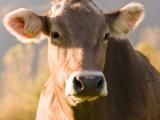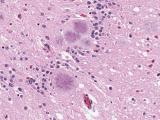Aug 23, 2006 (CIDRAP News) Canada has identified its eighth case of bovine spongiform encephalopathy (BSE), or mad cow disease, just a few weeks after the seventh case.
The illness was found in an Alberta beef cow estimated to be between 8 and 10 years old, the Canadian Food Inspection Agency (CFIA) announced. Given the cow's age, it was probably exposed to the disease either before or shortly after Canada banned the feeding of cattle protein to cattle and other ruminants in 1997, the agency said.
The cow was tested in the course of Canada's BSE surveillance program, which targets high-risk cattle. "No part of the animal's carcass entered the human food or animal feed systems," the CFIA said.
Officials are trying to identify the cow's birth farm so they can verify the animal's age, find its herd mates, and locate potential sources of contaminated feed.
Canada's seventh BSE case was identified Jul 13 in a 50-month-old dairy cow from Alberta, a discovery that prompted concern because the cow was born several years after the 1997 feed ban took effect. The sixth case, in a cow from Manitoba, was announced just days earlier, on Jul 4.
The United States banned imports of Canadian cattle and beef after Canada's first BSE case in May 2003. The border was reopened to boneless beef from young cattle a few months later, but live cattle were banned until July 2005, when officials reopened the border to cattle destined for slaughter before reaching 30 months of age.
Three BSE cases have been found in the United States so far, the latest one in an Alabama cow last March.
See also:
Jul 14 CIDRAP News story "Canada confirms 7th BSE case; US joins probe"
















